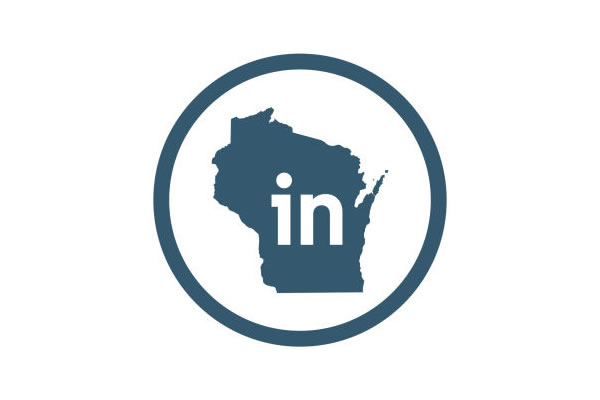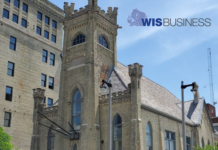Collaboration between a variety of Wisconsin and Luxembourg industries have begun via a state virtual trade mission that aims to build on ties dating back to the 1800s.
The relationship between Wisconsin and Luxembourg dates back to the 19th century with the emigration of nearly one-third of Luxembourg citizens to the U.S. — notably to the Village of Luxemburg in Door County.
Today, you can find a community of 350,000 Wisconsinites with Luxembourg ancestry, areas where Lëtzebuergesch is still spoken and stores selling Luxembourg wine, beer and traditional mustard.
“The ability of business and leaders from our state and your country to connect virtually at this time is a testament to the strength of our bonds, and the resourcefulness and creativity that makes Wisconsin such a great place to do business,” Gov. Tony Evers said in his opening address yesterday.
He touted Wisconsin’s vaccination rate and pandemic recovery before telling viewers that the state’s attention is turning to economic recovery.
“We need to bounce back better and ensure we’re looking forward and beyond the pandemic. So our state is making big investments in the things that make us competitive on the global stage,” Evers said, noting schools, roads and broadband are key investments.
“Global trade and investment are key parts of our plan to move forward,” he added.
“A virtual trade mission allows Wisconsin companies and entrepreneurs to learn about and build new partnerships with their counterparts in Luxembourg,” noted Katy Sinnott, WEDC vice president of global trade and investment. “When Wisconsin and Luxembourg looked for areas that are ripe for collaboration, we settled on the water sector, financial technology and startups.”
The three-day virtual mission kicked off with announcements from Luxembourg Minister of the Economy Franz Fayot. Fit 4 Start, an acceleration program for IT and space technology startups, is accepting applications from Wisconsin startups until April 15. Selected companies can get up to $175,000 to expand in Europe by developing their activities in Luxembourg.
Fayot also announced a partnership with Madison-based gener8tor that will launch a new startup program allowing up to five Luxembourg startups a year to explore their potential for expansion in the U.S. from Wisconsin.
“We believe that Wisconsin has some very interesting opportunities that connect and complement well with Luxembourg,” said Cindy Tereba, the director of international affairs at the Luxembourg Chamber of Commerce. She added it’s encouraging to see that the U.S. is sending positive messages regarding multilateral trade, climate change initiatives and rejoining the Paris Climate Act.
“I think all of this is a very encouraging message,” she said. “We are also responding positively to this change of mind and this change of government and the message sent from the U.S. to us.”
More than 150 participants registered for the three-day mission, a larger group than the face-to-face venture typically sees. The first day of the trade mission was devoted to the water sector, including water treatment and sustainability.
Water Council President and CEO Dean Amhaus and Milwaukee-based A. O. Smith Corp Senior Vice President Samuel Karge discussed what U.S. companies are looking for in tech investment and why international clean water tech should be interested in Wisconsin.
Karge explained that doing business in the U.S. or China is easy given the universal language and large, singular market. In Europe, there are barriers to licensure within all the smaller countries. A. O. Smith is looking for companies that can participate across the board with transferable technologies. In water tech specifically, Karge said A. O. Smith looks at ready-to-commercialize technologies.
He asked clean water tech startups during the mission to consider Wisconsin over the coasts because there are fewer regulatory barriers. He added Wisconsin, in particular Milwaukee, is no more than a 2-hour flight from anywhere in the U.S.
“It’s also just the good environment because there are so many like-minded companies particularly in the water treatment space,” Karge said. “We’ve got an abundance of talent locally here, you’ve got an abundance of technology people, it’s just much easier than trying to start off in one of the farthest coasts.”
Amhaus added that European countries often gravitate toward costly, large cities.
“But to be able to look at and gravitate towards Milwaukee and Wisconsin, you can get plugged into a really powerful network of very established water technology companies, universities and utilities as well,” he said.
Amhaus also plugged the council’s tech challenge, a global competition for entrepreneurs designed to identify cutting-edge freshwater technologies with a high potential for commercialization or implementation. Applications are due in November.
The trade mission’s second day focuses on financial technology.
WEDC Deputy Secretary Sam Rikkers and Fiserv Inc. Chief Digital and Data Officer Byron Vielehr will give an opening introduction today.
The “Future of Banking” roundtable will feature Vielehr and Wisconsin Bankers Association President and CEO Rose Oswald-Poels representing Wisconsin. The “Future of Insurance” roundtable will feature Wisconsin panelists Northwestern Mutual Managing Director Craig Schedler, Madison-based Understory Weather CEO Alex Kubicek and CUNA Mutual Group analyst Laura Sievert.
Tereba said the country has a strong fintech industry. Luxembourg is also a very important European financial hub — the second-biggest hub of funds after the U.S., she said.
The final day of the virtual trade mission, tomorrow, is all about startups.
“You have a very vibrant startup community,” she told WisBusiness.com. “We also of course are looking into developing our startup community. It’s a very international community, so they are much more eager to go abroad and see what other countries are doing, especially the U.S. market.”
This is the first virtual trade mission for WEDC, which is separate from the trade ventures.
The key difference between the Luxembourg virtual trade mission and the virtual global trade ventures is that the ventures included one-on-one meetings between Wisconsin businesses and potential partners or customers. The Luxembourg event features industry speakers, panel discussions and Q&A sessions instead.
WEDC has organized five virtual global trade ventures since the pandemic began. A virtual trade venture to Poland is scheduled for June.
Learn more about the virtual trade mission and register here.
See a previous story on the WEDC international efforts.
-By Stephanie Hoff
WisBusiness.com






